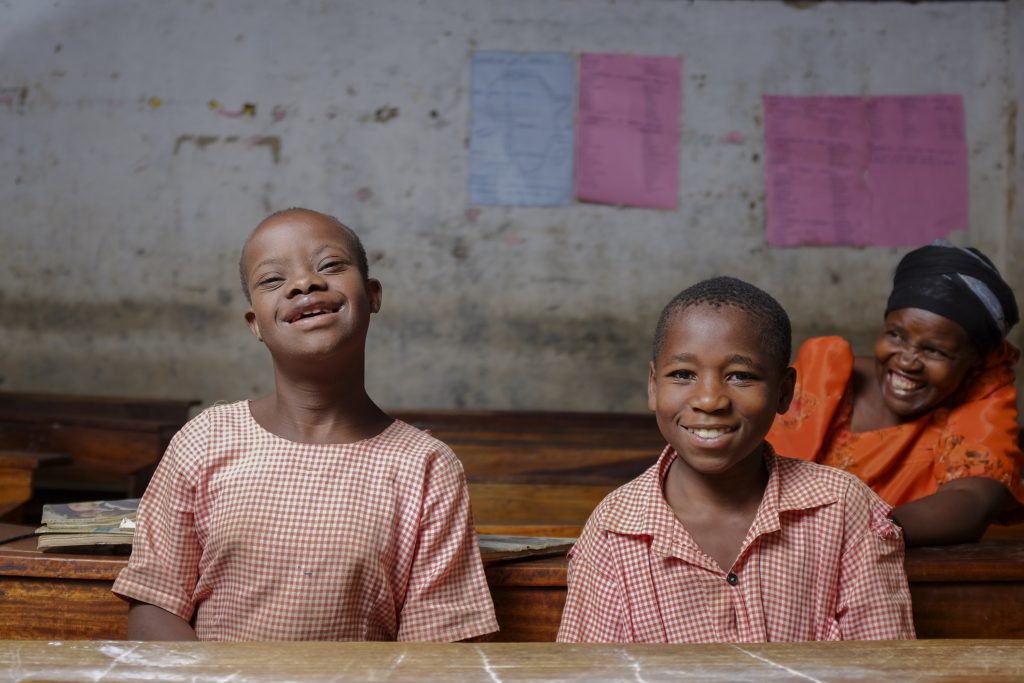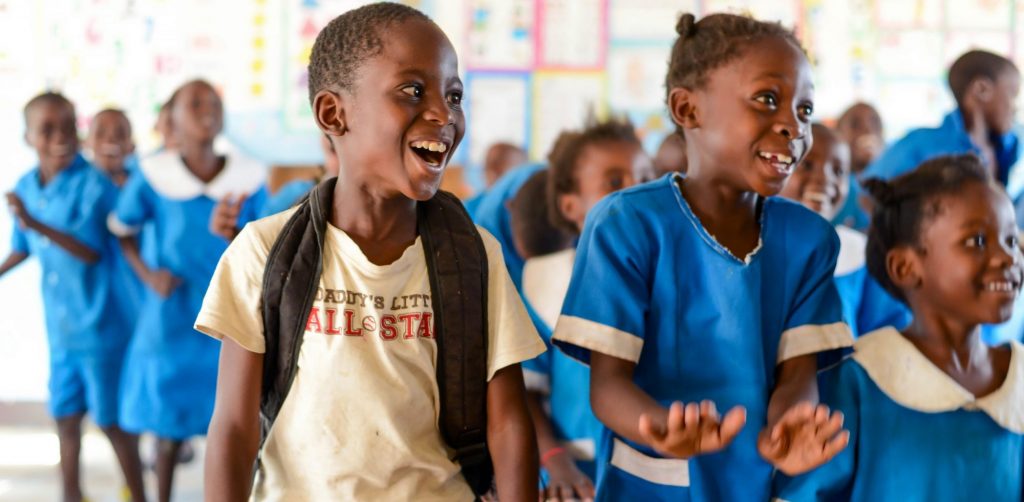Children with disabilities are often disproportionately exposed to risks such as poverty, discrimination and stigma, institutionalisation, abuse, and limited access to services such as education. The Inclusive Education Programme is about ensuring that children and young adults with disabilities have access to a quality education that is inclusive, removes barriers to learning, respects rights, and leads to fulfilment of potential.
NAD and the National Union of Disabled Persons of Uganda (NUDIPU) have collaborated on Inclusive Education Programmes in Uganda since 1987.
Understanding barriers to learning in Uganda
While Uganda is one of the developing countries in Africa with progressive education programmes, including universal primary and secondary education, children with disabilities are still among the most frequently left behind in education. According to the UN, about 23% of children with disabilities of primary school age in Uganda are out of school, compared with 11% of children without disabilities.
The most common barriers to education are often inadequately skilled teachers and school leadership, inaccessible buildings and curriculum, and limited knowledge about the needs and rights of children with disabilities by teachers, parents, community leaders, and Disabled People’s Organisations (DPOs).
The low enrolment rates and high dropout rates affects the inclusion of persons with disabilities in all aspects of society. It takes away their opportunity for higher education, and has severe impact on their access to employment.

Promoting Inclusive Education
NAD, in collaboration with the Enabling Education Network (EENET), has developed the Inclusive Learning Approach. It is a holistic approach to Inclusive Education that involves multiple stakeholders, such as children, parents, teachers, school leadership, communities, education authorities and DPOs.
We work with DPOs and governments to ensure Inclusive Education in local schools, so that children with disabilities can stay with their families, build social networks and be part of the local community together with other children.
The Inclusive Learning Approach has two main components:
- the Inclusive Teaching component
- the Inclusive Advocacy component
Through the Inclusive Teaching component, we work with schools and the education systems to give them the tools necessary to become inclusive. Through the Inclusive Advocacy component, we work with persons with disabilities and DPOs to strengthen their knowledge on Inclusive Education and the use of national and international legal frameworks, so that they can effectively advocate for their rights, raise awareness and hold their government accountable.
Main achievements in Uganda
Some of the main achievements of our Inclusive Education work and partnerships are:
The Inclusive Teaching component
- NUDIPU is collaborating closely with Save the Children and Strømme Foundation, as well as technical partner EENET, on piloting a comprehensive set of teacher training modules on inclusive education in Uganda.
- Teachers and early childhood development service providers are being trained in inclusive teaching methods and environments for learners with disabilities. In total, 174 teaching staff have been trained in the districts of Sheema and Kamwenge. Save the Children and Strømme Foundation are rolling out the same trainings in other districts.
- Peer sensitisation sessions were conducted in mainstream schools where learners with disabilities are enrolled.
The Inclusive Advocacy component
- DPOs have been trained on the use of national and international legal frameworks, including signed conventions, as well as national and local policies and legislation.
- DPO members at all levels of NUDIPU are also going through a training process focused on inclusive education and how to strengthen their advocacy efforts.
- NUDIPU’s networking and collaboration with other education stakeholders has significantly improved their influence on the education sector.
- In response to the COVID-19 pandemic, NAD has produced and distributed locally adapted home based learning materials to parents and learners. The material focuses on how parents of children with disabilities can ensure the activities are inclusive and engaging for children facing various barriers to learning. The poster and catalogue were translated into six different Ugandan languages, as well as in braille.

